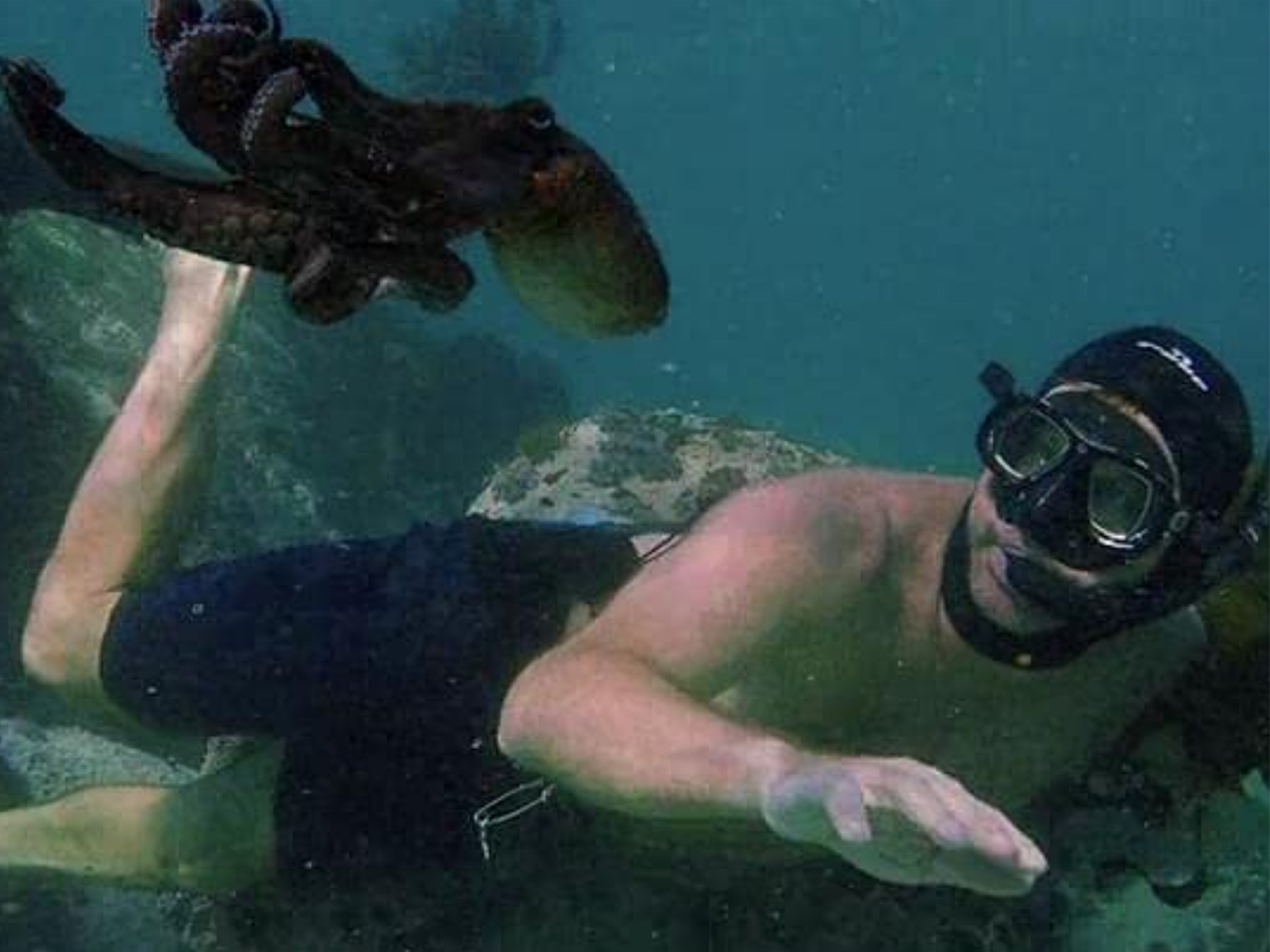
- Film
Docs: My Octopus Teacher (2020)
My Octopus Teacher, the family-friendly feature debut of the eco-journalist Pippa Ehrlich and the nature-documentary producer James Reed, is a stunningly looking animal-loving film. The 2020 Netflix original documentary has just won the Producers Guild of America (PGA) Award for Best Documentary and is now nominated for the Best Documentary Feature Oscar. It chronicles the amiable work of Craig Foster, the film’s producer-narrator as he forges an unusual relationship with a wild female octopus (an eight-armed cephalopod) in a South African kelp forest.
The aptly titled film, which was ten years in the making, is the first South African nature documentary to be on Netflix Original. Remarkable, as the octopus’s lifespan is about three years, the film covers her bond with the diver Foster for a year and a half.
In 2010, Foster began freediving in a cold underwater kelp forest in False Bay, near Cape Town, South Africa. The location was near Simon’s Town on the Cape Peninsula, which is exposed to the cold Benguela current of the Atlantic Ocean. He started to document his experience, in the process of which he met a curious young octopus that captured his attention. Intrigued, he decided to keep visiting her den and tracking her movements every single day for 18 months in order to win the animal’s trust. In due course, the two form a bond where she plays with Foster and allows him into her world to see how she sleeps, lives, and eats.
As he breaks the human/animal barrier, getting close, letting the octopus check him out, he asks the question we want to ask: “What is the octopus getting out of this interaction?” His answer surprises and upends some of the science on these “alien” creatures that seem a lot smarter and more social, than anybody knew – despite their solitary existence.
Among the feature’s more interesting scenes are those depicting the octopus defending herself against Pyjama sharks. In one such attack, the octopus loses an arm, and retreats to her den to recover, slowly regenerating the arm over three months. In a later attack of a shark, she shows stronger survival instincts, including sticking on the shark’s back.
Later on, after mating with a bigger octopus and producing a large number of eggs, the octopus dies naturally while tending for her eggs and a shark takes her body away.
Foster describes the effect of this mentorship, how he learned a lesson on the fragility of life and humanity’s connection with nature. It’s noteworthy that Foster was then suffering from a midlife crisis, and that through his repeated encounters with the octopus, he managed to lift himself out of his emotional and mental malaise. Moreover, the bond also influenced his familial relationships. Foster developed a deeper and more intimate connection with his son, especially when the latter was engaged as a diver and marine life student.
The cinematography was supervised by ace underwater cameraman Roger Horrocks with footage from Craig Foster and Horrocks. Some of the underwater footage, not shown in the film but shot at the same location, had already been shown on Blue Planet II, episode 5. If you’ve ever snorkeled, you know how impossible getting all this footage between gulps of breath must have been.
Foster was also a producer via his involvement with the Sea Change Project, and his wife, Indian environmental journalist Swati Thiyagarajan, was the film’s production manager.
The new feature differs radically in goal, structure, and tone from Reed’s previous work, the 2017 Rise of the Warrior Apes, about the social behavior of a chimpanzee clan in Uganda’s Kibale National Park. That documentary offered new insights into the violence, power struggles, rivalry, enmity, and friendship within the hierarchical primate group. Depicting war against external conspecifics and brutal hunting of other monkey species, it concluded that animals are by no means better than humans.
Viewers of all walks of life – and this is a genuinely family-friendly entertainment – are guaranteed to come away with a new respect for the octopus as a species, and with a sense of astonishment at Foster’s intimate connections. The feature amazes with its gorgeous, never-before-seen images of the octopus, showing signs of possessing human intelligence, ability to protect herself, and even humorous playfulness. There’s genuine joy in observing how it bonds with Foster, indicating the humanizing of both animal and diver in a state of blissful co-existence.